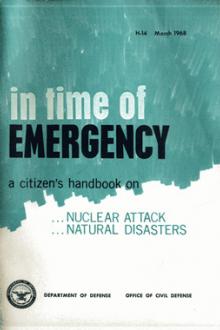Beautiful Things by Hunter Biden (books on motivation .txt) 📗

- Author: Hunter Biden
Book online «Beautiful Things by Hunter Biden (books on motivation .txt) 📗». Author Hunter Biden
I went. He checked me into a rehab center in Brentwood, where I stayed clean for about two weeks. I then lived in a rental off Nichols Canyon, in the Hills, with a sober coach. It was great—the beauty, the peace, the support—right up until the moment I relapsed.
My lesson after a spring and summer of nonstop debauchery: no lesson at all.
Just that it was awful.
Unimaginably awful.
CHAPTER TEN
LOST HIGHWAY
My penultimate odyssey through full-blown addiction became a shabbier, gloomier, more solitary version of the chromatic tear I went on through Southern California.
I came back east. The trees soon were bare and the low slate sky seemed to hover inches above my head. In my mind’s eye, I can’t picture a single day during my months back there that wasn’t gray and overcast, a fitting, ominous backdrop.
I had returned that fall of 2018, after my most recent relapse in California, with the hope of getting clean through a new therapy and reconciling with Hallie.
Neither happened.
For all the obvious reasons—my extended disappearances, my inability to stay sober, her need to stabilize and reorder her own life and family—Hallie and I called it quits. The relationship no longer helped either of us. Our attempt to reanimate Beau remained as doomed as it was from the start. The fallout piled up. I tried to explain things to my daughters, but how could I expect them to comprehend a situation I hardly understood myself?
Next on my agenda was getting clean. I drove up to Newburyport, Massachusetts, an old New England shipbuilding-turned-tourist town thirty-five miles north of Boston. A therapist ran a wellness center where he practiced a drug addiction therapy known as ketamine infusion. I would make two trips up there, staying for about six weeks on the first visit, returning to Maryland, then heading back for a couple weeks of follow-up in February of the new year.
After my many failed rehab attempts, I was certain that my getting clean depended on more than just being told addiction is a disease and that it requires 100 percent abstinence. While that works for many people, and at times has worked for me, I felt sure that underlying trauma was something that I needed to address, especially in the wake of Beau’s death.
I’d done something similar in 2014 when I was treated in Mexico, with moderate success. That treatment—first using ibogaine, then 5-MeO-DMT, both psychoactive compounds—was mind-blowing in a very literal sense.
The ibogaine therapy was dark. After I ingested it alone in a quiet room inside the Tijuana clinic, a slideshow of my life had flickered before my eyes, one image-burst after another. I can’t recall all of the visions, but I do remember having no control over them—that is, I couldn’t stop them.
I also felt paralyzed, unable to move my arms, my legs, anything. It scared the hell out of me; I worried I’d never move again. A nurse would come in to check on me, the creaking of the room’s door screeching like nails on a chalkboard right next to my ear. Everything was heightened. That was followed by what they call a “gray day,” a period when I felt as if I’d been in a deep depression. I slowly came out of it, and twelve hours after it began, the treatment was over.
I was taken from there to a beach house in Rosarito, a dozen miles south of Tijuana, to do 5-MeO-DMT therapy, which employs the gland secretions of the Sonoran Desert toad—that should give you an idea of the state I was in. A smart, gentle nurse assisted me through the whole thing, which lasted about thirty minutes, though it seemed more like three hours, or three days, or three years.
It was a profound experience. It connected me in a vividly renewed way to everyone in my life, living or dead. Any division between me, my dad, my mommy, Caspy, or Beau vanished, or at least became irrelevant. It felt as though I was seeing all of existence at once—and as one.
I know it sounds loopy. Yet whatever else it did or didn’t do, the experience unlocked feelings and hurts I’d buried deep for too long. It served as a salve. I stayed sober for a year afterward—until I stormed out of that therapy debacle with Kathleen.
The ketamine sessions were equally intense, just as frightening, and not nearly as effective, though that’s more on me than on them.
Originally developed as an animal tranquilizer and later used for surgical anesthesia during the Vietnam War, ketamine has become widely known for its illegitimate use as a club drug—Special K. Medical researchers have found it to be effective in treating depression and post-traumatic stress disorder. As an extension of that, it has also been used to help break the cycle of drug dependence.
Its effect can be mind-bending and hallucinatory, though in a cogent, manageable way. You talk your way through whatever you’re experiencing or seeing. For me, fears and past traumas surfaced vividly: Beau and me staying up late as kids, afraid that we’d wake in the morning to find Dad gone; the two of us looking at each other from hospital beds after the accident; the accident itself.
During and after those sessions, I longed even more for Beau’s and Dad’s presence, to feel their physical and psychic connection together, at the same time—the three of us as one again. I struggled to figure out how Dad and I fit together now, with such a large piece of the puzzle missing. I felt guilty and confused about that distance. I felt like I was killing off the one thing that could give me hope.
The therapy’s results were disastrous. I was in no way ready to process the feelings it unloosed or prompted by reliving past physical and emotional traumas. So I backslid. I did exactly what I’d come to Massachusetts to stop doing. I’d stay clean for a week, break away from the center to meet a connection I





Comments (0)